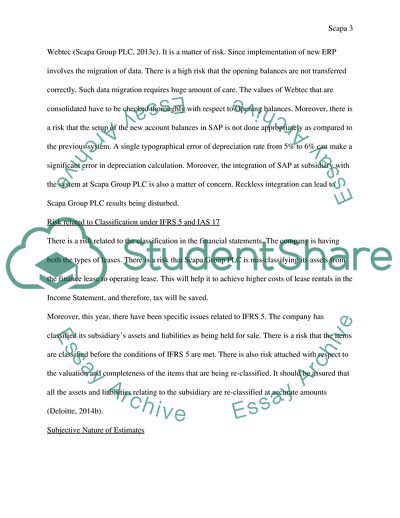Cite this document
(Audit Risk Analysis of Scapa Group PLC Case Study - 1, n.d.)
Audit Risk Analysis of Scapa Group PLC Case Study - 1. https://studentshare.org/finance-accounting/1815900-audit-risk-analysis-of-a-company
Audit Risk Analysis of Scapa Group PLC Case Study - 1. https://studentshare.org/finance-accounting/1815900-audit-risk-analysis-of-a-company
(Audit Risk Analysis of Scapa Group PLC Case Study - 1)
Audit Risk Analysis of Scapa Group PLC Case Study - 1. https://studentshare.org/finance-accounting/1815900-audit-risk-analysis-of-a-company.
Audit Risk Analysis of Scapa Group PLC Case Study - 1. https://studentshare.org/finance-accounting/1815900-audit-risk-analysis-of-a-company.
“Audit Risk Analysis of Scapa Group PLC Case Study - 1”. https://studentshare.org/finance-accounting/1815900-audit-risk-analysis-of-a-company.


